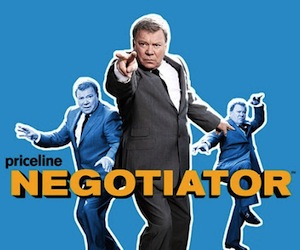Brands
Why Every Business Should Be Creating Great Content
Everyone has heard of Groupon, the daily-deal website that rocketed to more than 100 million subscribers leading up to its IPO, where it raised $700 million, making it the largest IPO by a U.S. Internet company since Google Inc. raised $1.7 billion in 2004.
 But not everyone realizes what made Groupon stand out from other deal sites when the site launched three years ago: Great writing and a unique voice.
But not everyone realizes what made Groupon stand out from other deal sites when the site launched three years ago: Great writing and a unique voice.
As The New York Times put it, “Groupon’s fate hinges on words.”
Whatever your business, you should pay attention to putting the best possible content in front of your customers.
Too many businesses today focus on search engine optimization as the means of attracting customers to their sites. But while a high Google rank may bring them in, it won’t guarantee that they convert into buyers, or that they’ll come back when they see the site in future search results.
That’s why Google’s human researchers have declared war on “content farms” that rank high in results but deliver weak content to those who click. Google is all too aware that users who hit too much bad content ultimately decided Google isn’t worth using.
Good content matters not just for news and how-to sites, it matters for retailers.
You’ve probably had this experience: You click on a site because it advertises a low price for a gadget. But the product writeups are so bad — negligent grammar, boilerplate descriptions, intractable prose — that you wonder if the company can really deliver, or if it might instead be a phishing scam run in some country you can’t find on a map.
By contrast, look at Amazon: Whether it’s a book or a USB drive, Amazon spends money to include professional reviews on its product pages, and curates the best customer reviews to appear immediately below them.
At a higher level, a badly-written company blog or an impossible-to-understand product description put off people looking to pay big money for premium products and services.
Weak content sends a message: We’re dumb. Or we can’t be bothered to make the effort to win you over. We’ll take your money, but will we know how to deliver the service and support you need?
You don’t need to go as far as Groupon’s whimsically fictional descriptions of its vendors. Follow the basics of writing: Be concise, be unambiguous, and explain the who/what/where/when/why that people need to know.
 Give your site a personality customers can bond with. Look at Priceline: In theory it could compete by offering the lowest prices. In practice, it’s employed William Shatner and a team of writers and producers to give Priceline a personality. It makes others sites seem like Priceline-wannabes, whether or not they’ve got lower prices.
Give your site a personality customers can bond with. Look at Priceline: In theory it could compete by offering the lowest prices. In practice, it’s employed William Shatner and a team of writers and producers to give Priceline a personality. It makes others sites seem like Priceline-wannabes, whether or not they’ve got lower prices.
Even if you can’t afford Shatner, you can still give your business a voice. The good news for businesses is that the Internet has made it as easy to hire good writers as it is to find bad content.
Contently connects businesses looking for good writers with good writers looking to get the recognition and pay they deserve, without a lot of runaround.
The content on your site is the personality that customers will come to associate with your business. There are plenty of daily-deal sites, but Groupon has an edge over all of them: It’s the site people read even when they’re not buying. Isn’t that what you want your site to be?
Image courtesy of Flickr, swanksalot
Get better at your job right now.
Read our monthly newsletter to master content marketing. It’s made for marketers, creators, and everyone in between.




